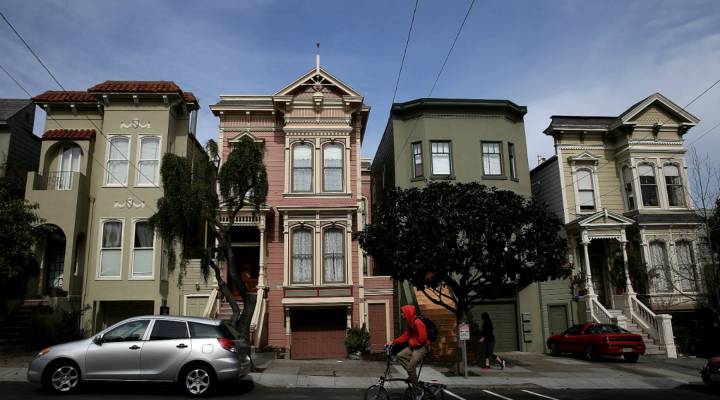
Jumbo mortgages bigger piece of the housing pie

Home prices are approaching, and in some markets exceeding, the peaks hit during the run-up to the Great Recession. And that means ever more of the mortgages that buyers need are jumbo mortgages — typically for $417,000 or more. As jumbo loans become a bigger piece of banks’ lending business, some borrowers lower on the income ladder could lose out.
In the post-recession market, jumbo mortgages are more desirable for banks to have on their balance sheets than lower-value loans, said real estate professor Chris Mayer at Columbia Business School. “These are super safe loans to borrowers who have significant down payments and are highly qualified.”
Guy Cecala, publisher of “Inside Mortgage Finance,” said that in the aftermath of the housing crisis, with banks facing tighter financial regulations and significant fines and legal penalties for past lending practices, jumbo loans have become more attractive.
“Banks — not just big banks, also small banks and credit unions — like the jumbo market,” said Cecala. “All those loans have to be held on your books, so there’s no competition from the secondary market or mortgage securities market. And you make up all the rules as far as underwriting. You decide who gets a loan and who doesn’t. They’re very appealing and profitable.”
Jumbos are financially beneficial for affluent borrowers, too, said Cecala. “Assuming you’ve got decent credit, it’s easier and more cost-effective to get a jumbo mortgage now than it was in the five years leading up to the financial crisis.”
The country’s biggest banks—including J.P Morgan Chase, Bank of America, and Citigroup—have increased their share of jumbo loans in recent years, according to data compiled by ComplianceTech, a fair-lending software and consulting firm based in McLean, Virginia.
Managing director Maurice Jourdain-Earl said this is leaving would-be homeowners of color behind.
“It’s an adverse effect, simply because the issue of access to credit is alive and well,” said Jourdain-Earl. He pointed out that the share of black jumbo-mortgage borrowers has declined from 6.8 percent in 2006, to 1.7 percent in 2014 (the latest year for which data is available).
“If there’s not as much capital available to make loans to the loan amount and type that people of color and people with lower assets need, if those loan types are less available, then there’s a squeeze,” said Jourdain-Earl. He said that pushes borrowers into government-backed loans tied to Fannie Mae, Freddie Mac and the Federal Housing Administration, which tend to be more costly for the homeowner.
There’s a lot happening in the world. Through it all, Marketplace is here for you.
You rely on Marketplace to break down the world’s events and tell you how it affects you in a fact-based, approachable way. We rely on your financial support to keep making that possible.
Your donation today powers the independent journalism that you rely on. For just $5/month, you can help sustain Marketplace so we can keep reporting on the things that matter to you.


















